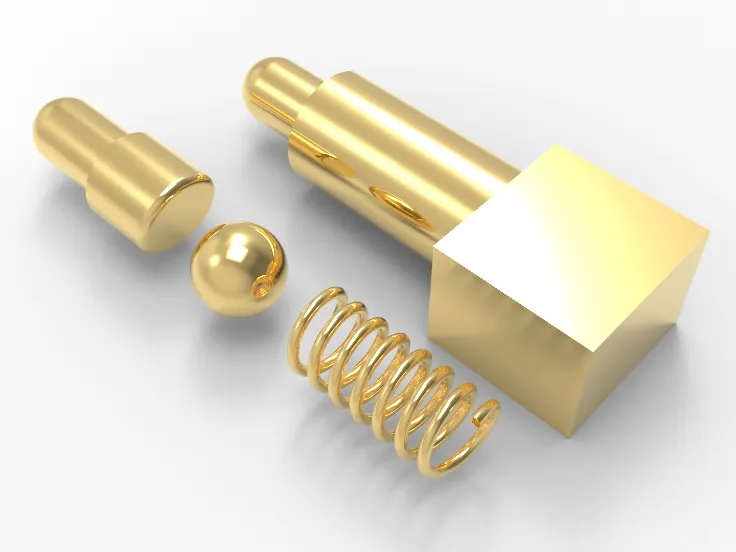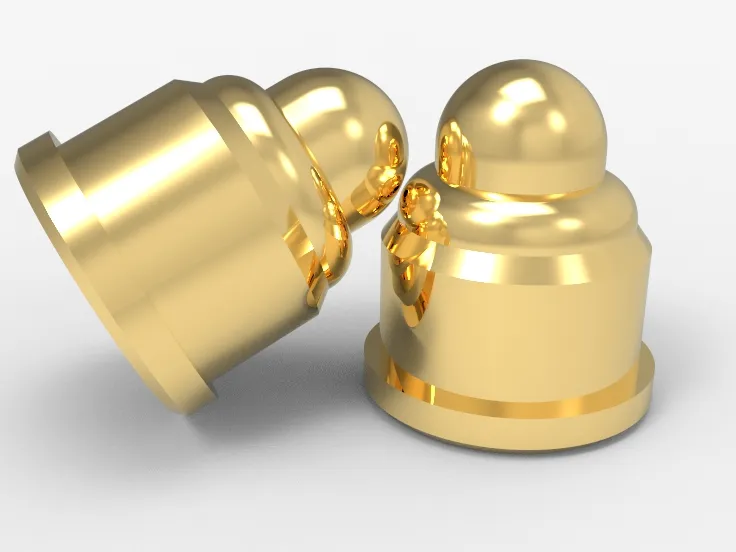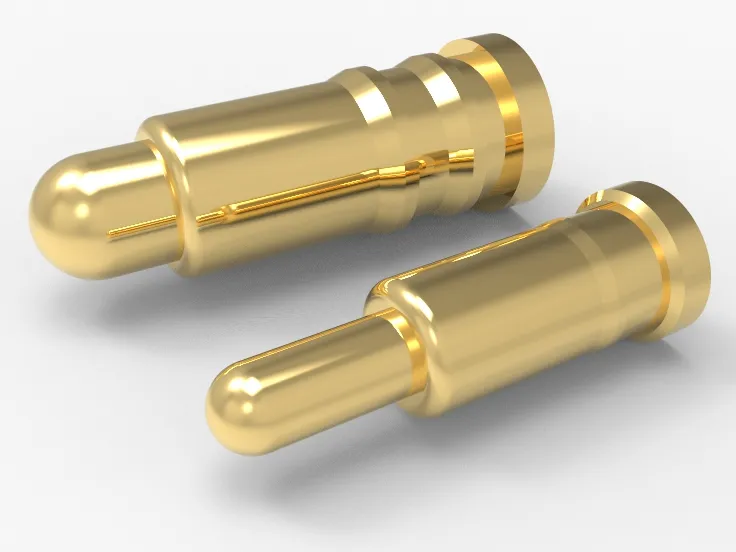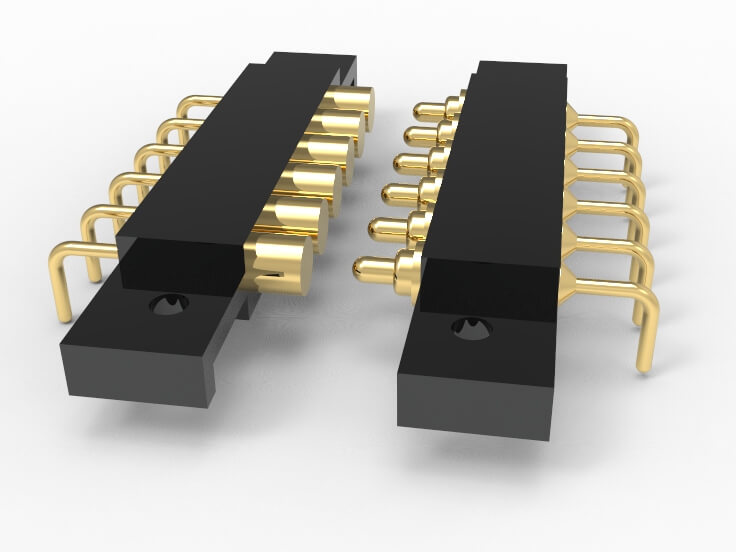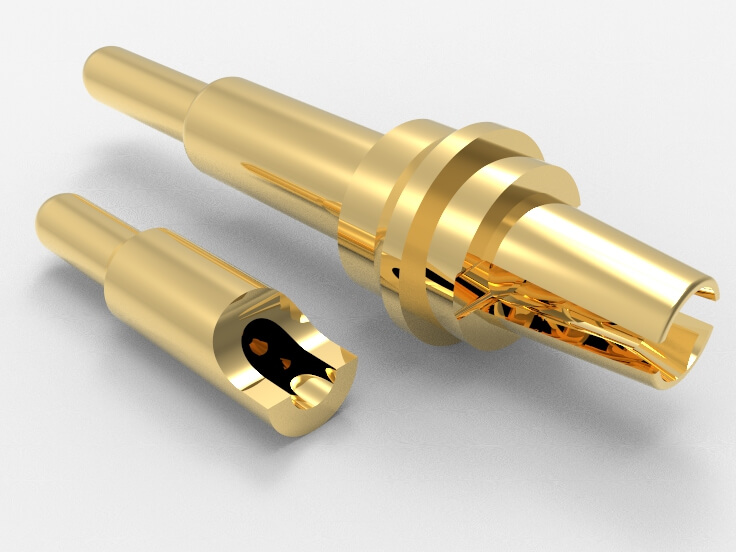What is Precision Machining? Discover Johoty’s Meticulous Techniques Ensuring Pogo Pins Meet the Highest Standards of Dimension and Performance
Introduction: What is precision machining?
What is precision machining? In modern manufacturing, precision machining is a core technology that demands exceptional craftsmanship and meticulous attention to detail. Johoty has set industry standards with its advanced technology and rigorous processes. Particularly in the production of Pogo Pins, Johoty ensures each Pogo Pin and Pogo Pin Connector meets the highest standards of dimensional accuracy and performance through a series of detailed machining steps.
Precision machining is not just a technique; it’s an art form. Johoty’s fine technology and precise processes showcase the true allure of precision machining. This relentless pursuit of detail elevates the performance of Pogo Pins in high-end electronics. Exploring Johoty’s precision machining technology offers an in-depth understanding of manufacturing craftsmanship and a glimpse into future technological advancements.
Overview: What is precision machining?
1. Definition: What is precision machining?
Precision machining is a high-precision manufacturing technique aimed at producing parts and components that meet strict tolerance requirements and high-performance standards. It’s widely used in various fields, including aerospace, medical devices, and electronics. Key aspects include:
- Accuracy Requirements: Precision machining focuses on controlling the size, shape, and surface quality of parts with micrometer or even nanometer precision.
- Process Technology: Advanced techniques like CNC machining, EDM, laser cutting, and ultrasonic machining are used to ensure high precision. Choosing the right process for specific needs is crucial.
- Material Selection: For precision machining, we need materials that are tough and can handle a lot of stress without breaking. Common materials include high-strength steel, titanium alloys, and aluminum alloys.
- Inspection and Verification: Quality control is essential, using precision measurement tools like CMMs and laser scanners to ensure parts meet design specifications.
- Johoty’s Technological Advantages: Johoty’s expertise in precision machining includes detailed process planning, strict quality control, and precise equipment. Especially in producing Pogo Pins, Johoty ensures each pin achieves top performance standards, enhancing reliability and fostering innovation.
2. Core Technologies: What is precision machining?
- High-Precision CNC Machines: The latest CNC machines achieve micrometer-level accuracy for complex shapes.
- EDM Equipment: Removes material using electrical discharge, suitable for hard materials and intricate profiles.
- Laser Cutters: Use high-energy lasers for precise cutting of fine and complex patterns.
- Ultrasonic Machining: Applies ultrasonic vibrations for precision on hard materials and fine details.
- Grinding Machines: Improve surface finish and dimensional accuracy with abrasive materials.
- CMP Equipment: Combines chemical and mechanical polishing for extremely smooth surfaces.
- Cooling Systems: Advanced cooling reduces temperature and thermal deformation, enhancing precision.
- CMMs: Make sure to check the part’s size very carefully to confirm it matches the design and meets quality requirements.
- LMD Equipment: Uses lasers to melt and deposit material for repair and additive manufacturing.
- EBM Equipment: Employs electron beams for precision machining of microstructures and high-detail parts.
3. Application Areas: What is precision machining?
- Aerospace: Precision machining ensures the safety and performance of aircraft by meeting high tolerance and strength requirements for parts like turbine blades and fuselage components.
- Medical Devices: For surgical instruments and implants, precision machining guarantees functionality and reliability, enhancing patient outcomes.
- Automotive Manufacturing: Used for engine parts, transmission systems, and chassis components, precision machining improves vehicle performance, durability, and safety.
- Electronics: In smartphones, computers, and sensors, precision machining ensures precise assembly and efficient operation of tiny components, boosting reliability and functionality.
- Energy Sector: Precision machining enhances the efficiency and lifespan of components like wind turbine blades and oil drilling tools.
- Military Industry: Key parts of weapon systems and military equipment are produced with precision machining to ensure operational performance and durability.
- Optical Devices: Machining ensures clarity and accuracy in lenses, microscopes, and laser equipment.
- Mold Manufacturing: Provides high-precision molds for plastic injection and stamping, ensuring consistency and quality in production.
- Watchmaking: Used in high-end watches to create complex mechanical parts, enhancing accuracy and aesthetics.
- Semiconductor Industry: Precision machining techniques are crucial for manufacturing integrated circuits and chips, ensuring high performance and reliability in electronic devices.
Johoty’s Precision Machining Technology: What is precision machining?
1. Technology Background: What is precision machining?
- Extensive Industry Experience: Johoty has years of experience covering all stages from design to production, with deep technical knowledge and practical expertise.
- Advanced Equipment: Utilizes state-of-the-art CNC machines, EDM equipment, and laser cutting technology for high-precision and complex parts.
- Strict Quality Control: Implements a comprehensive quality management system, including precise measurement tools like CMMs for rigorous quality checks.
- Innovative Processes: Continuously improves machining techniques, such as cooling technology and material processing, to enhance precision and efficiency.
- Material Science Expertise: Selects and optimizes materials based on application needs to ensure the best performance.
- R&D Capability: Invests heavily in research and development to advance machining technology and create new processes to meet market demands.
- Custom Solutions: Provides tailored machining solutions designed to meet specific customer requirements for size and performance.
- Industry Certifications: Holds international certifications like ISO9001, ensuring compliance with global quality standards.
- Technical Support and Training: Offers support and training to help customers fully understand and utilize Johoty’s precision machining technology.
- Continuous Improvement: Focuses on ongoing improvements and technology upgrades, regularly evaluating and optimizing production processes to maintain industry leadership.
2. What is precision machining? Process Overview:
Design Stage: What is precision machining?
- During the design phase for precision machining, Johoty uses CAD and CAE software for detailed modeling and simulation. These tools accurately calculate part dimensions, shapes, and functional needs, while predicting potential production issues. Designers also consider material properties to select the most suitable machining methods and parameters.
Material Selection
- The success of precision machining relies on high-quality raw materials. Johoty is very selective, often choosing high-performance metal alloys, ceramics, or engineering plastics for their excellent mechanical properties, corrosion resistance, and stability to ensure product quality and durability.
Machining Processes
Johoty employs advanced equipment like CNC machines, EDM, and laser cutting. Each process offers unique benefits:
- CNC Machines: Computer-controlled for high-precision cutting, capable of complex shapes and dimensions.
- EDM: Uses electrical sparks for fine machining, ideal for hard materials and small holes.
- Laser Cutting: Employs high-energy lasers for precise cuts, suitable for intricate patterns and high precision.
Testing and Verification
- After machining, Johoty rigorously tests each Pogo Pin, including size measurements, functionality, and durability tests. High-precision instruments like CMMs and laser scanners ensure parts meet design specs. By simulating real-world conditions, we test to ensure that the product performs reliably and remains stable.
Quality Control
- Johoty has a strict quality control system, inspecting and recording every step from material procurement to production. By using statistical process control and continuous improvement, we maintain top-quality standards for each batch.
Post-Processing and Assembly
- After machining, Johoty performs necessary post-processing such as surface coating and heat treatment to enhance corrosion resistance and mechanical strength. Detailed assembly ensures each component’s precision and functionality.
Pogo Pins Size and Performance Standards
1. Size Requirements:
Ultimate Size Control:
- Johoty maintains extreme control over sizes from the design stage to ensure the final product meets specifications. For high-end applications, pin diameters can be controlled to ±0.001 mm to fit micro connectors precisely, avoiding connection issues.
Tolerance Range:
- Tolerance requirements vary by application. For high-frequency communication devices, tolerances might be ±0.002 mm for stable signal transmission. In medical instruments, tolerances can be as tight as ±0.001 mm for precision and reliability, ensuring stable performance in various environments.
Diverse Applications
- Johoty’s Pogo Pins serve multiple fields, from microelectronics to high-end medical devices. For consumer electronics, precise sizes and tolerances are critical due to compact designs and frequent use. In industrial automation, durability and stability are key, with slightly wider but still precise tolerances.
2. Performance Standards:
Electrical Performance: Perfect Stability and Reliability
- Johoty’s Pogo Pins excel in electrical performance with unmatched stability. Each pin has a contact resistance carefully controlled to below 5 milliohms, ensuring clear and stable signal transmission. For high-frequency applications, our pins maintain extremely low signal loss, supporting fast and accurate data transfer.
- We also design for excellent conductivity and low electrical noise, making our pins perform exceptionally well in complex circuits.
Mechanical Strength: Ideal Design and Materials
- Johoty’s Pogo Pins set high standards for mechanical strength. We fine-tune the spring force of each pin to make sure it maintains steady pressure when plugging in and pulling out. Our pins can handle at least 50,000 insertion cycles without contact failure, thanks to our high-strength spring materials and precision machining.
- Corrosion resistance and vibration resistance are also key design elements, ensuring our pins maintain top mechanical performance even in harsh environments.
Durability: Confidence in Long-Term Use
- Our Pogo Pins undergo rigorous testing for durability. We perform reliably in high, low, and humid temperatures, typically ranging from -40°C to +125°C. We also test resistance to chemical corrosion to prevent material degradation or performance issues over time. Accelerated aging tests verify the stability of our pins in long-term use, ensuring we hold up in demanding applications.
3. Real-World Examples:
Absolute Precision in High-Frequency Communication Devices
- In high-frequency communication devices, Johoty’s Pogo Pins demonstrate exceptional electrical performance and dimensional stability. For instance, a leading 5G base station uses our custom Pogo Pins with contact resistance controlled below 5 milliohms, ensuring interference-free signal transmission.
- The pins have a size tolerance of ±0.001 mm to fit extremely compact interfaces. In harsh high-frequency environments, these pins support high-speed data transfer and minimize signal loss and interference, meeting the communication industry’s high-performance requirements.
Ultimate Durability in Medical Devices
- In medical devices, precision and durability are crucial. For example, an advanced endoscope system uses Johoty’s Pogo Pins, which maintain outstanding performance in extreme conditions. Each pin operates reliably within a temperature range of -40°C to +125°C with a tolerance of ±0.001 mm, ensuring perfect fit with the equipment.
- Additionally, these pins have passed stringent corrosion resistance tests to withstand chemicals in medical environments. This high standard of precision machining not only meets the demand for stable connections but also enhances the overall durability and reliability of medical devices.
High-Frequency Stability in Consumer Electronics
- In the realm of consumer electronics, a smartwatch chose Johoty’s Pogo Pins to address issues with unreliable charging connections. Johoty’s Pogo Pins are specially designed with optimized spring force, allowing them to endure over 50,000 plug-in cycles while maintaining very low contact resistance.
- This minimizes energy loss during charging. These Pogo Pins also undergo rigorous vibration testing to suit the everyday use of a smartwatch. Johoty’s precision manufacturing ensures that the smartwatch’s charging interface remains stable and reliable, enhancing the user experience.
Conclusion:
In modern manufacturing, precision engineering is crucial for the quality of Pogo Pins. Precision engineering involves complex design and production processes, requiring strict control of tolerances and performance parameters at every stage to ensure top-quality results. For Johoty, this technical expertise not only showcases their skill but also reflects the company’s commitment.
The Critical Role of Precision Engineering for Pogo Pin Quality
- Precision engineering is foundational to achieving high-quality Pogo Pins. The successful production of each Pogo Pin relies on highly accurate design and manufacturing techniques. With precise size control, Johoty ensures that each Pogo Pin perfectly fits and functions with devices, avoiding connection issues and signal transmission problems.
- Additionally, precision engineering allows Pogo Pins to maintain stable electrical performance and mechanical strength in various environments, meeting the strict demands of high-frequency communication, medical equipment, and consumer electronics.
Johoty’s Technological Edge in Precision Engineering
- Johoty’s technological edge in precision engineering is evident in several areas. We use advanced CNC machines, EDM, and laser cutting technologies, which allow for high precision and complex geometric shapes. Johoty is also meticulous about material selection, using high-performance alloys and plastics to ensure the durability and reliability of Pogo Pins. Furthermore, Johoty implements comprehensive quality control throughout production to ensure each batch meets strict specifications and tolerances.
- Through precision engineering, Johoty has not only improved the size and performance standards of Pogo Pins but has also set a high benchmark for quality in the industry. From design and material choice to manufacturing processes, Johoty’s expertise and rigorous approach ensure that every Pogo Pin delivers outstanding performance in real-world applications.











